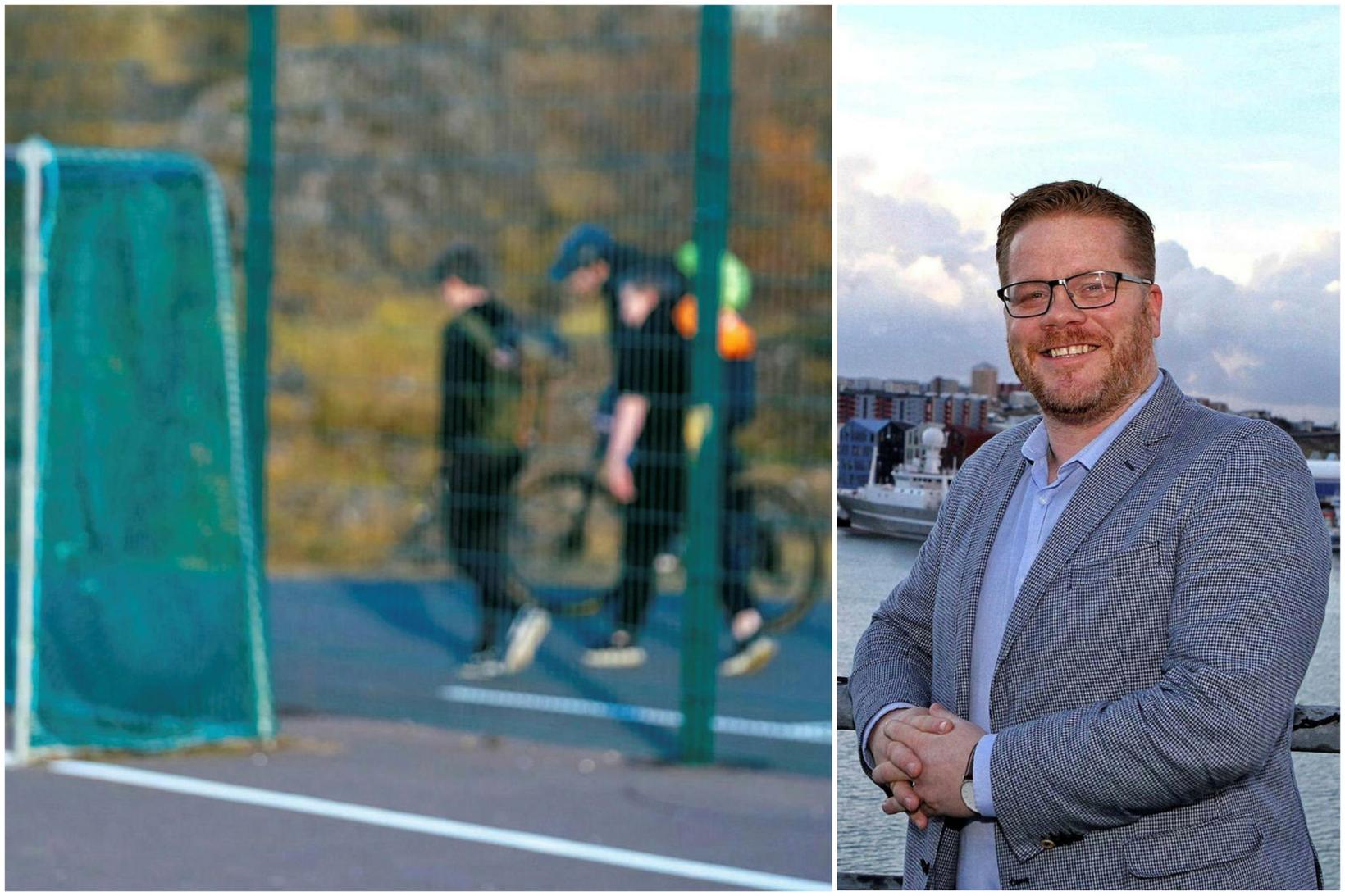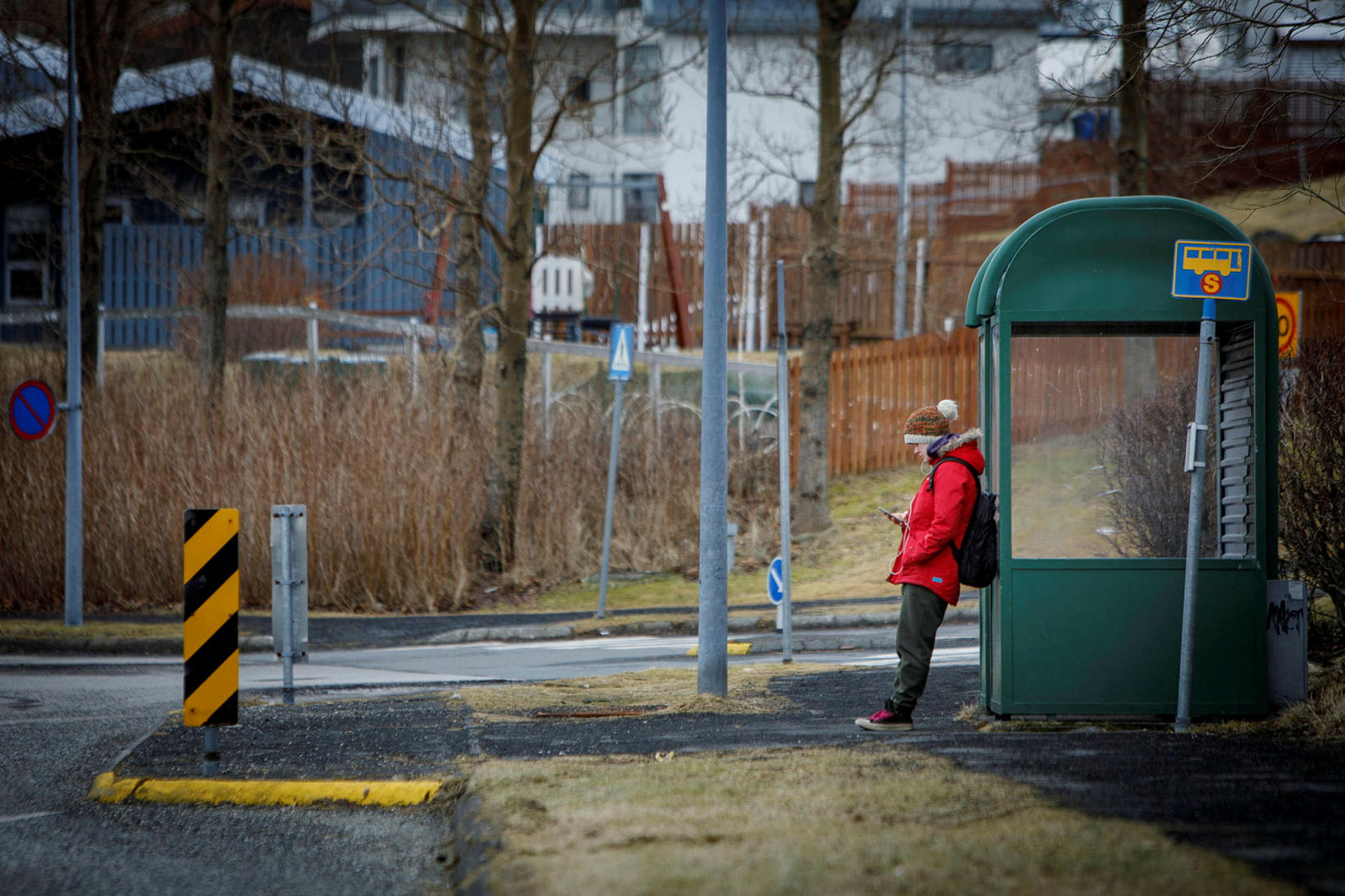The phone ban has had a big impact on school work
Valdimar Víðisson, the headmaster of Öldutúnsskóli says that the phoneban has been well received, both by students and their parents. Composite image
A phone ban has been in place at Öldutún School since the beginning of 2019, and according to the principal, it has worked well. The school's atmosphere and culture have changed for the better, and there is more peace in the classroom.
However, the headmaster Valdimar Víðisson says that it has not been separately studied whether the phone ban has had a positive effect on literacy and interest in reading. Still, Öldutúnsskóli has scored considerably above average regarding interest in reading.
"We haven't connected it to the phones directly, but it would be interesting to look at it separately." However, we see this in an improved school culture, and cyberbullying has decreased significantly during school hours with this measure and is now hardly existent."
More screen time reduces interest
It has been reported in Morgunblaðið that students who spend more time on smartphones are less interested in reading than those who use their phones little or not at all.
The interest in reading is waning faster and faster as students spend more time on their smart devices.
These are the results of research by Kristján Ketill Stefánsson, assistant professor of pedagogy at the University of Iceland's Faculty of Education. The research is based on data from more than fifteen thousand students in grades 6 to 10 in 120 elementary schools across the country.
Everything seems to indicate that more screen time reduces children's interest in reading.
The ban was prepared for a whole year
Stefánsson does not necessarily think it is wise to encourage a general ban on mobile phones in schools, but rather implement some kind of phone “holiday”.
Öldutúnsskóli has, however, taken the route of completely banning the use of phones during school hours. The phone ban is in place in all year groups of the school, from 1st to 10th grade, and the headmaster says he is not about to drop it.
Víðisson says he realizes that phones can be a safety device and that children use them, for example, after the school day ends to reach their parents. "The phone is therefore not prohibited in the building, but its use is not allowed during school hours," he explains.
Both students and parents have welcomed the phone ban, as it was prepared for a whole year in collaboration with the board of the student association, school council and parents, according to Víðisson.
"We did a lot of things in return, for example, we opened a new space for the teenagers that they designed, so there was no dissatisfaction with this at the time and it has not arisen. People just know that using phones is not allowed, and if the kids are sneaking to use the phone and an employee is nearby, they are very quick to react and know that this is not allowed."
Phones may not be taken from students
When asked if phones are taken from students if they don't follow the rules, he says they haven't done so as the school doesn't have the authority to do so.
"However, we have the authority to request that the phone be left at home and that the parents make sure that it does not come to school. But in general, the same applies to violations of telephone rules and violations of other rules. It depends on a certain process, after a certain time there is a meeting with the parents and so on," he says.
"If this is a problem for a child, it has been worked with parents, and in some cases phones have had to be left at home for a while and something like that."
Spend much less time on the phone
Stefánsson’s study results also revealed that the majority of children in the top three grades of primary school spend an hour a day or more on smartphones during school hours. There are even examples of children spending up to three hours a day on the phone during school hours.
The headmaster says that in Skólapúlsinn (research portal for schools) it is clearly stated that the children in Öldutúnsskóli, and other schools where the phone ban is in place, spend much less time on the phone than their peers, or less than 30 minutes a day. In Skólapúlsinn, the children themselves answer questions about school work, well-being, activity in studies, and more, and the information is collected without revealing personal information.
"This has fixed and improved the atmosphere at our school and there is much better work peace during lessons. The kids know what the rules are, if they are using the phone, there are certain penalties for that, so it has become part of their culture that the phone is not a teaching tool."
The kids talk more and the teenagers use the new space to play table tennis, pool, and more, listen to music, and play chess.










